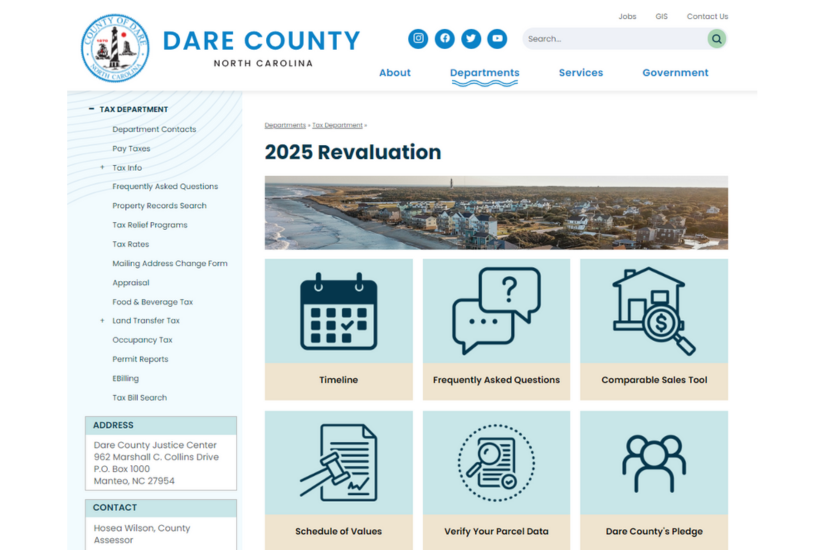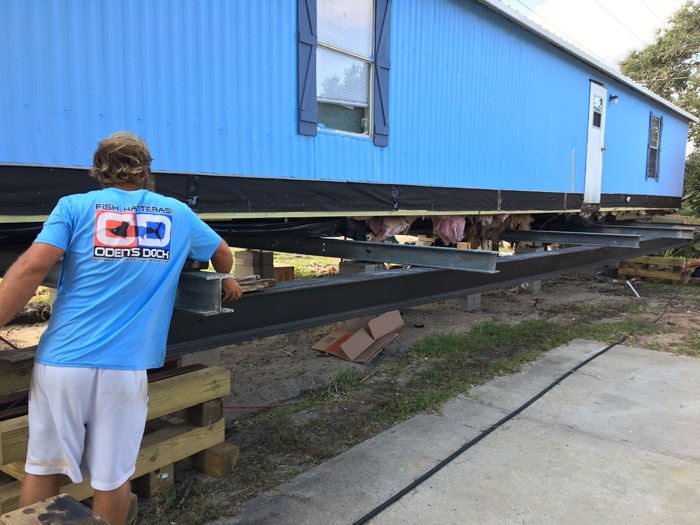Hatteras Island Real Estate: Perspectives on Home Inspections
Hatteras Island Real Estate:
Perspectives on Home Inspections
Over the years, I have written several articles concerning home inspections. Recently, there has been an increased level of discussion from a variety of sources concerning this important aspect of real estate transactions. So, let’s revisit the topic of home inspections with the goal of both updating the environment within which home inspections are conducted and providing perspectives from the viewpoints of both buyers and sellers.
Once a buyer and a seller have agreed upon the price and terms for a property, there are a number of activities that take place between the time the contract is finalized and the closing of the sale. This is where a major update of the sales process has taken place. In the past, real estate contracts often contained a number of contingencies to protect the interests of the buyer and the seller. Several years ago, a new contract form was introduced in North Carolina which, for all practical purposes, eliminated the need for most contingencies.
In place of contingencies, a provision known as a Due Diligence Period was included in the contract. During this time frame – usually about 30 days – buyers have the right to conduct any and all inspections and evaluations of the property that they deem essential prior to their purchase. Of particular significance is the stipulation that during the Due Diligence Period, the buyer has the right to terminate the contract for any reason or for no reason. One of the most common and important evaluations that buyers order is a home inspection.
According to an informative pamphlet published by the North Carolina Real Estate Commission, a home inspection is an evaluation of the visible and accessible systems and components of a home. It is intended to give the client, most often the buyer, a better understanding of the condition of these systems and components. Since most buyers lack the knowledge, skill and emotional detachment needed to inspect the home themselves, they usually retain the services of a licensed home inspector.
A home inspector can be located independently by a buyer or, more commonly, through a real estate agent. Before performing the inspection, the home inspector will usually call the buyer, discuss any areas of special concern that the buyer may have, and forward a contract containing a description of the inspection services. Then, the inspector will schedule a date for the evaluation and will coordinate access to the home through the real estate agent.
The actual home inspection can take two hours or more, depending on the property being evaluated. The buyer is welcome to accompany the inspector. After the inspection has been completed, the inspector will prepare a report that generally consists of a summary supported by individual pages that provide details of the inspection of each system and component in the house.
The home inspector works for the buyer, and it is the home inspector’s responsibility to let the buyers know as much as possible about the property that they are purchasing. In some cases, the inspector may recommend further evaluation of an item by a specialist, such as an engineer, a contractor, or an electrician.
Home inspection reports often contain comments that certain aspects of a house do not meet current building codes or that the house contains plumbing materials that are no longer in use. When evaluating these comments, buyers may not be aware that sellers do not have a responsibility to bring a home up current building code standards. The house is assumed to have met the building code standards in effect at the time the home was built.
Following receipt of the home inspection report, the buyer generally submits a list of repairs that they request the seller to complete. This, in essence, generates a second round of negotiations after the basic price and terms of the contract have been already been finalized.
The home inspection is very comprehensive and contains observations that are both substantive and cosmetic. The extent and depth of the inspection can be a source of potential friction between the buyer and the seller when the list of repairs is presented to the seller.
Some buyers take the approach that the seller should fix the majority of the items identified as defective by the home inspector, while others focus their request for repairs on the items that they consider to be most important. Neither philosophy is right or wrong. However, it has been my experience that the repair negotiation process goes most smoothly when the list of repairs is limited to those that are related to some reasonable criteria such as the safety of the house or those that the seller would probably have to fix whether or not they were selling the property. Reasonable requests by the buyer are usually met by a reasonable response from the seller.
Interestingly, the sales contract contains another provision that the buyer and seller may, but are not required to, engage in negotiations for repairs/improvements to the property. This is a bit of a Catch 22 situation since if the seller is not willing to negotiate repairs, the buyer has the right to terminate the contract under the due diligence section of the contract.
Once agreement has been reached concerning which repair requests will be acceptable to the seller, the issue then becomes the manner in which the repairs will be addressed. One choice is for the seller to actually make the agreed upon repairs. The other option is for the buyer and the seller to negotiate some sort of financial settlement.
There is often less room for potential controversy if the seller does not make the repairs. If the seller makes the repairs, then there is always the possibility that the buyer will not like the manner in which the repairs were made, and still another round of negotiations can be necessary.
The more common solution is for the buyer and the seller to settle the repairs through either a mutually agreeable price reduction or an agreement for the seller to pay a portion of the buyer’s closing costs.
Whatever the agreed upon resolution of the repair request ends up being, it is important for the buyer and the seller to reach agreement before the end of the Due Diligence Period or to agree in writing to an extension of the Due Diligence Period.
The good news is that this story almost always has a happy ending. The buyer purchases a home that has passed a wide range of tests and evaluations, and the seller obtains a fair price for his or her property, allowing them to move on to the next chapter in their life. For both parties, it is all about dreams – those to come and those that have been fulfilled.
To learn more about the home inspection process, talk with your real estate agent, and read the North Carolina Real Estate Commission’s pamphlet, “Questions and Answers on Home Inspections”. This publication is available online at http://www.ncrec.gov. Click on the consumers tab, and scroll down to publications.







